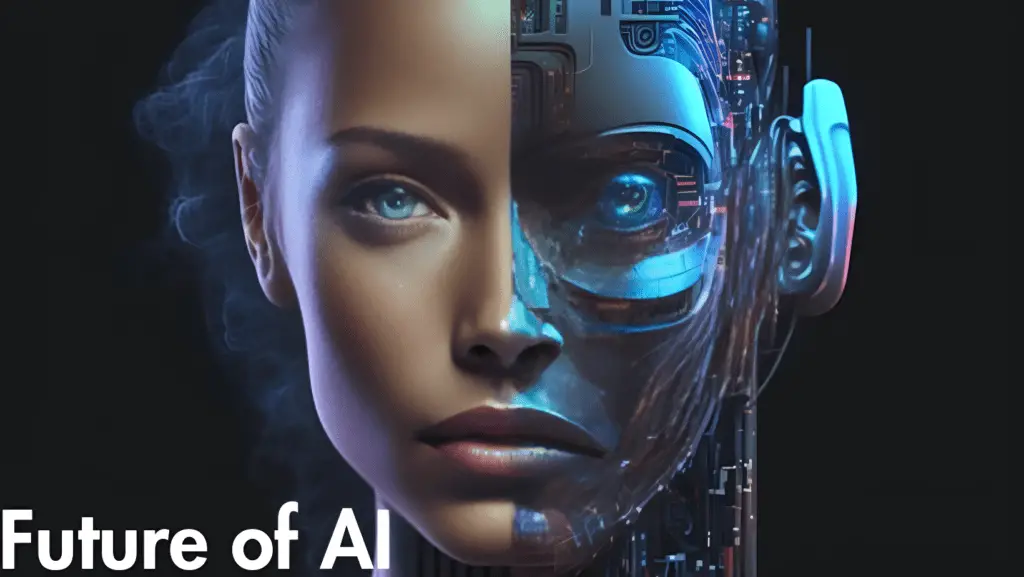Artificial Intelligence (AI) has emerged as one of the most transformative technologies of our time. With its ability to mimic human intelligence and perform complex tasks, AI has the potential to revolutionize various industries and reshape our future.
In this article, we will explore the future of AI, its impact on society, and the exciting possibilities that lie ahead.
Artificial Intelligence has come a long way since its inception. From humble beginnings as a concept in science fiction, it has evolved into a powerful tool that is changing the way we live and work.
AI systems have the ability to analyze vast amounts of data, learn from it, and make intelligent decisions. This has opened up new possibilities and opportunities across various domains.
Advancements in AI Technology

Deep Learning
Deep Learning, a subset of AI, has revolutionized the field with its ability to process and understand complex data. Through the use of neural networks, deep learning algorithms can recognize patterns and make accurate predictions.
This has led to breakthroughs in areas such as image and speech recognition, natural language processing, and recommendation systems.
Natural Language Processing and AI
Natural Language Processing (NLP) is an area of AI that focuses on enabling computers to understand and interpret human language. With advancements in NLP, AI-powered virtual assistants can now understand and respond to human queries in a conversational manner.
This has opened up new avenues for human-computer interaction and has made AI more accessible and user-friendly.
Computer Vision and AI
Computer Vision, another branch of AI, enables machines to perceive and understand visual information. Through the use of deep learning and image processing techniques, AI systems can analyze images and videos, recognize objects and faces, and even understand emotions.
This has applications in fields such as healthcare, surveillance, and autonomous vehicles.
Reinforcement Learning
Reinforcement Learning is a branch of AI that focuses on training machines to make decisions through trial and error. By rewarding or penalizing AI systems based on their actions, they can learn to optimize their performance and achieve desired outcomes. Reinforcement Learning has been successfully applied in areas such as robotics, gaming, and resource management.
AI in Various Industries

Healthcare: Transforming Patient Care
AI has the potential to revolutionize healthcare by improving diagnostics, personalizing treatments, and streamlining administrative processes. AI-powered algorithms can analyze medical images to detect diseases at an early stage, predict patient outcomes, and assist in surgical procedures.
With the integration of AI, healthcare providers can deliver more accurate and efficient care.
Finance: Enhancing Decision-Making Processes
In the finance industry, AI is being used to analyze vast amounts of financial data and identify patterns and trends. AI-powered algorithms can make predictions about market movements, optimize investment portfolios, and detect fraudulent activities.
This enables financial institutions to make more informed decisions and provide better services to their customers.
Transportation: Revolutionizing Autonomous Vehicles
Autonomous vehicles powered by AI have the potential to transform the way we commute. AI algorithms can analyze sensor data, navigate through complex environments, and make real-time decisions to ensure safe and efficient transportation.
With the adoption of autonomous vehicles, we can reduce accidents, traffic congestion, and carbon emissions.
Education: Personalized Learning with AI
AI has the potential to revolutionize education by providing personalized learning experiences to students. AI-powered tutoring systems can adapt to the individual needs and learning styles of students, providing tailored instructions and feedback.
This enhances the learning process and helps students achieve better outcomes.
Ethical Considerations in AI Development
Ensuring Transparency and Accountability
As AI systems become more pervasive, it is crucial to ensure transparency and accountability in their development and deployment. Clear guidelines and regulations need to be established to govern the ethical use of AI.
This includes making AI systems explainable so that their decision-making processes can be understood and audited.
Addressing Bias in AI Algorithms
AI algorithms are only as good as the data they are trained on. It is important to address biases in data to prevent AI systems from perpetuating social, gender, or racial biases.
Developers and researchers must actively work towards creating inclusive and unbiased AI algorithms that treat all individuals fairly.
Data Privacy and Security Challenges
With the increasing use of AI, there are growing concerns about data privacy and security. AI systems rely on vast amounts of data, including personal information, to make accurate predictions and recommendations.
It is crucial to establish robust data protection measures and ensure that user data is handled securely and with consent.
Collaboration between Humans and AI Systems
The future of AI lies in the collaboration between humans and AI systems. While AI can automate routine tasks and provide valuable insights, it is important to recognize that human judgment and creativity are still irreplaceable.
By embracing AI as a tool for augmentation, we can leverage its capabilities to enhance human productivity and unlock new possibilities.
The Future of AI and Human Collaboration

AI as a Powerful Tool for Augmentation
Rather than replacing humans, AI has the potential to augment human capabilities. By automating repetitive tasks, AI frees up time for humans to focus on more complex and creative endeavors.
This synergy between humans and AI can lead to increased productivity, efficiency, and innovation across various industries.
New Jobs and Opportunities
While there are concerns about job displacement due to AI, the future also holds the promise of new jobs and opportunities. As AI technologies continue to advance, new roles will emerge that require human skills such as creativity, critical thinking, and emotional intelligence.
It is important to embrace lifelong learning and adaptability to thrive in the AI-powered future.
AI and Creativity: Unleashing Human Potential
Contrary to the perception that AI stifles creativity, it can actually enhance and amplify human creative abilities. AI-powered tools can assist artists, writers, and designers in generating new ideas, exploring possibilities, and pushing the boundaries of creativity.
The collaboration between human imagination and AI algorithms can lead to groundbreaking innovations and artistic expressions.
Overcoming the Fear of Job Displacement
The fear of job displacement by AI is understandable, but it is important to approach it with a balanced perspective. While certain jobs may become automated, new opportunities will arise, and humans can focus on more fulfilling and meaningful work.
Reskilling and upskilling programs can help individuals transition to new roles and adapt to the changing job market.
Challenges and Concerns
AI and Unemployment
There are concerns that AI will lead to mass unemployment. However, historical evidence suggests that technological advancements have consistently created new jobs and industries.
While AI may change the nature of work, it is unlikely to completely eliminate employment opportunities.
AI Governance and Regulation
As AI becomes more integrated into our lives, there is a need for robust governance and regulation. This includes establishing ethical guidelines, ensuring transparency, and protecting user rights.
Governments, industry leaders, and researchers must collaborate to develop frameworks that foster responsible and ethical AI development and deployment.
Safeguarding Against Harmful Uses of AI
While AI has the potential for immense benefits, there is also a concern about its malicious use. Safeguards need to be in place to prevent AI technologies from being weaponized or used for unethical purposes.
Ethical considerations and stringent regulations can help mitigate these risks and ensure the responsible use of AI.
AI and the Wealth Gap
The adoption of AI has the potential to exacerbate existing social and economic inequalities. It is crucial to address this issue by ensuring equitable access to AI technologies and opportunities.
This includes providing training and resources to underserved communities and promoting diversity in AI research and development.
Conclusion
Artificial Intelligence holds tremendous potential for shaping the future. With advancements in AI technology, we can expect transformative changes in various industries, from healthcare to finance, transportation to education.
However, as we embrace the power of AI, it is essential to address ethical considerations, foster collaboration between humans and AI systems, and prepare for the challenges and opportunities that lie ahead.




